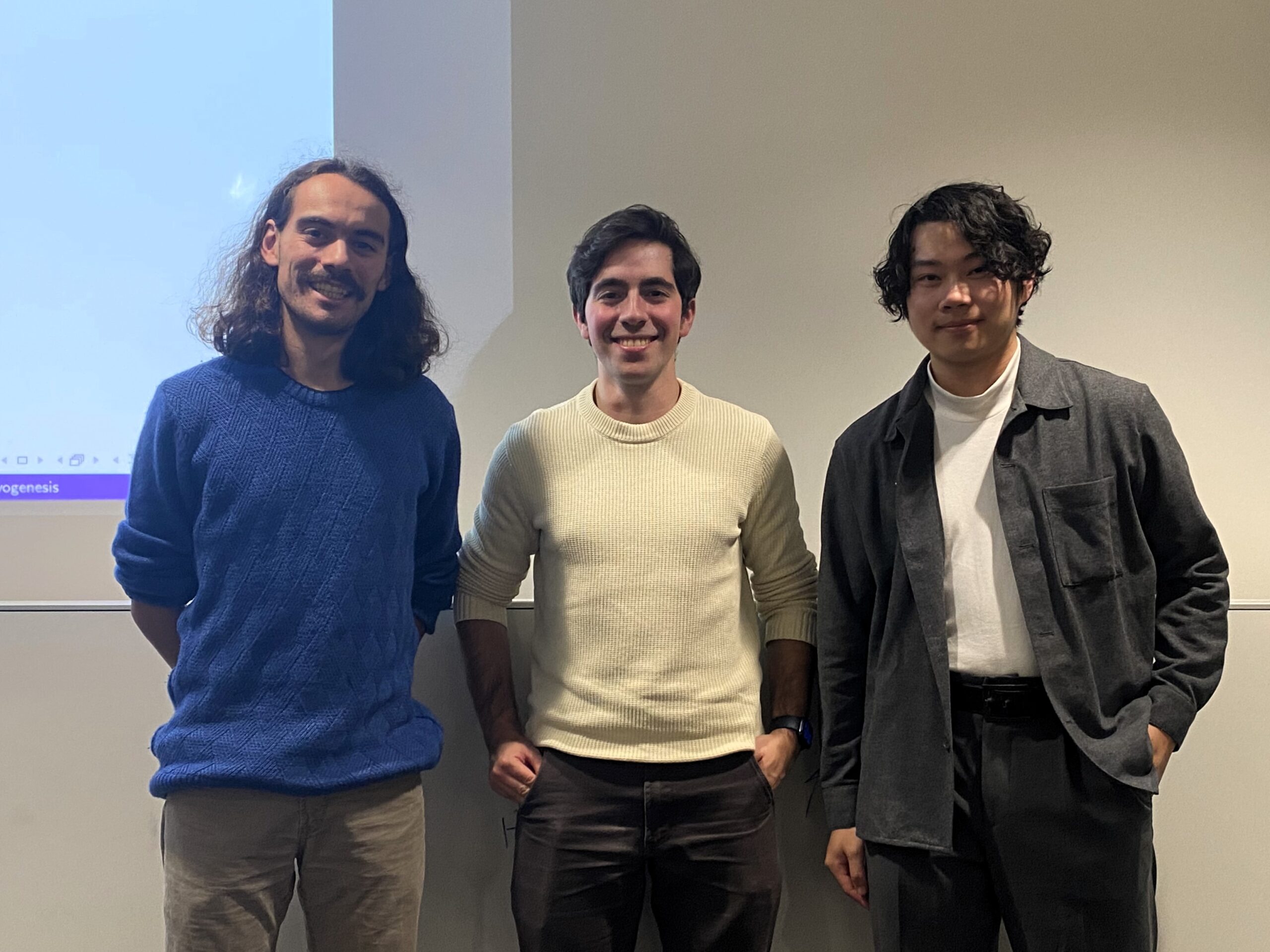Apostolos Giovanakis, Guglielmo Gigante, Yiyuan Chen – MSc students at ETH Zurich
Electroweak Baryogenesis in the Standard Model and Beyond – Apostolos Giovanakis
The matter-antimatter asymmetry in the Universe remains one of the most profound mysteries in cosmology and particle physics. Electroweak baryogenesis is a mechanism in the early Universe that generates this asymmetry between baryons and anti-baryons during the electroweak phase transition. However, the electroweak phase transition in the Standard Model is not strong enough to explain the observed baryon asymmetry. Finally, we will look at how physics beyond the Standard Model describes the observed baryon asymmetry of the Universe.
References: https://doi.org/10.1016/j.dark.2024.101682, https://arxiv.org/abs/2407.00807
Metrology in Quantum Thermal Machines – Guglielmo Gigante
Our ability to make things work is directly tied to how good we are at measuring physical quantities. After all, we all know how important it is to use a reliable food scale to measure the right amounts of each ingredient when baking a cake. But what happens when the ingredients and the scale obey the laws of quantum mechanics? How precise can our measurements get? These questions are addressed by the field of quantum metrology. In this talk, I am going to give a short introduction to this research area and show how its tools can be applied to the study of quantum thermal machines.
References: https://lup.lub.lu.se/student-papers/search/publication/9164985
Quantum Simulation of Black Holes using Lie-Trotter-Suzuki Formulas – Yiyuan Chen
Probing the nature behind black holes remains a fundamental challenge for modern physics. In recent years, quantum simulation has emerged as a promising way to study their properties. Among the current simulation methods, those based on Lie-Trotter-Suzuki formulas are perhaps the most natural and straightforward to implement on upcoming quantum devices. In this talk, we will dive into the theoretical framework and analysis of these simulations, highlighting their potential for advancing our understanding of black holes.
Recording
https://video.ethz.ch/speakers/theory/6a9d4970-a8f9-4bac-93b9-9c661d984f1e.html
